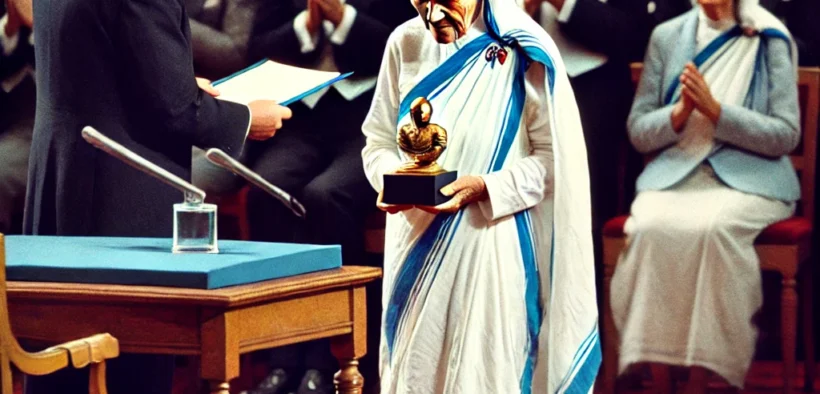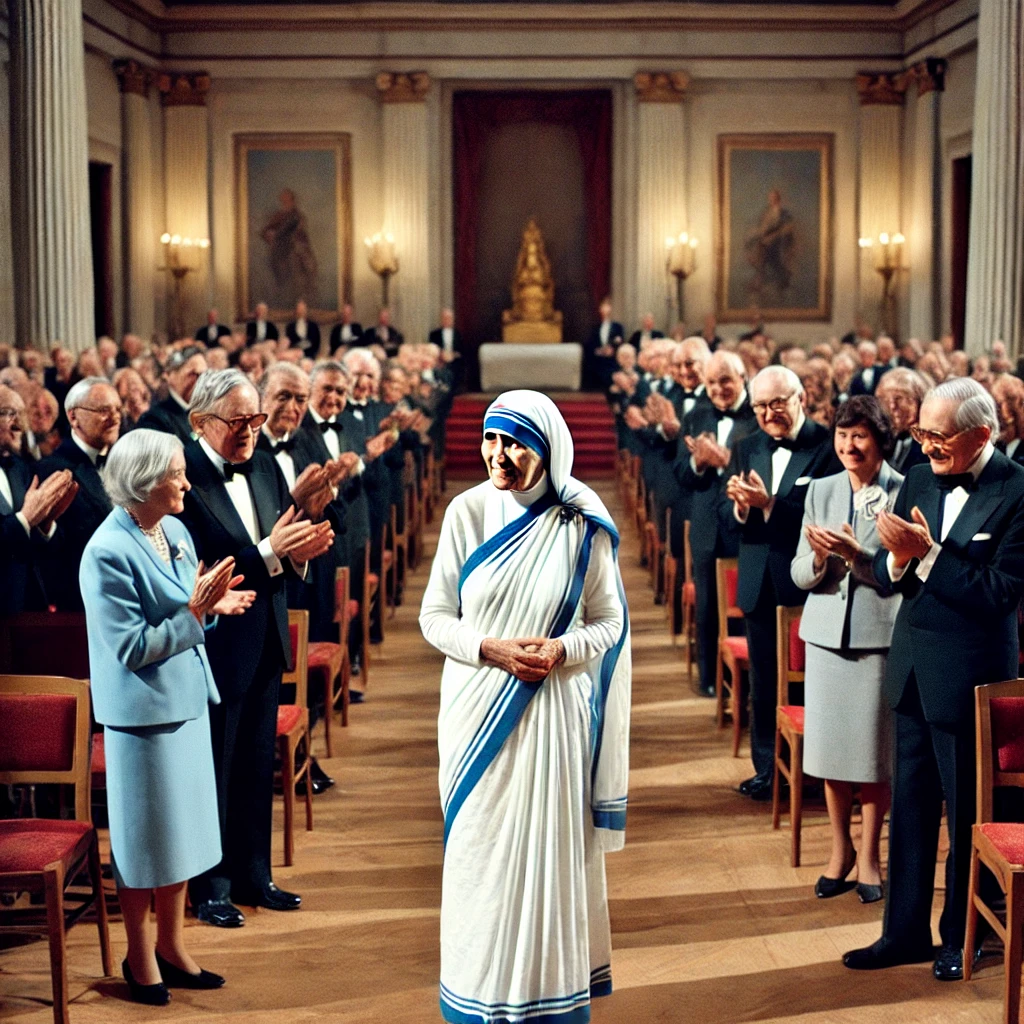Why Mother Teresa Won the Nobel Peace Prize and How She Used the Award for Humanity
Share

Story Highlights
- Mother Teresa won the 1979 Nobel Peace Prize for her humanitarian work helping the poorest and most vulnerable.
- She directed the Nobel Prize money to her charitable missions, supporting the sick and hungry in India.
- The Missionaries of Charity provided global care for the dying, orphans, and the homeless.
- Mother Teresa faced criticism for inadequate medical care, controversial donations, and glorifying suffering.
- Despite controversies, her legacy of compassion and service to the poor endures worldwide.
Why Did Mother Teresa Win the Nobel Peace Prize?
Mother Teresa was awarded the 1979 Nobel Peace Prize in recognition of her humanitarian work, particularly her efforts to assist the poorest and most vulnerable people. The Norwegian Nobel Committee emphasized her dedication to alleviating poverty, distress, and suffering, which they viewed as essential to promoting peace. Her work with the Missionaries of Charity played a crucial role, as she provided care for the sick, orphans, and those suffering from leprosy and HIV/AIDS in the slums of Kolkata. Mother Teresa’s compassion, dignity, and ability to uplift the most destitute were central reasons for her receiving the award. In her acceptance speech, she famously stated that she accepted the award “in the name of the poor,” underscoring her commitment to serving those who had been forgotten by society.

Mother Teresa Receiving the Nobel Peace Prize
In 1979, Mother Teresa was honored with the Nobel Peace Prize for her tireless humanitarian efforts. During the ceremony in Oslo, Norway, she humbly accepted the award, dedicating it to the “poorest of the poor” and reiterating her commitment to peace through compassion and service.
What Did Mother Teresa Do With Her Nobel Prize Money?
When Mother Teresa received her Nobel Prize, she declined the traditional celebratory banquet and requested that the $192,000 prize money be used to support the poor in India. Specifically, she directed the funds towards her charitable missions, including homes for individuals suffering from leprosy and hospices for the terminally ill. This gesture was in line with her lifelong dedication to using all available resources for the betterment of those in need, focusing on practical help such as feeding the hungry and providing care for the destitute.
What Criticisms Did Mother Teresa Face?
Despite her widespread admiration, Mother Teresa faced several criticisms throughout her life and after her death:
- Medical Care at Her Facilities: Some critics, including medical professionals and former volunteers, raised concerns about the inadequate medical care in her homes for the sick. Reports indicated that practices such as reusing unsterilized needles and insufficient pain relief were common. Critics argued that her focus on “dying with dignity” often overshadowed the need for proper medical treatment.
- Her Views on Suffering: Mother Teresa was criticized for what some perceived as her glorification of suffering. She believed that suffering brought people closer to Christ, and this philosophy was seen by some as problematic because it appeared to accept poverty and suffering rather than working to alleviate it.
- Political Associations: Mother Teresa’s close relationships with controversial figures, including Haitian dictator Jean-Claude Duvalier and financier Charles Keating, raised eyebrows. She was accused of accepting donations from dubious sources without questioning their origins, and she even wrote a letter to the court asking for leniency for Keating during his trial.
- Financial Transparency: Questions were raised about the management of the funds donated to her charities. Some reports suggested that a large portion of the money she received was not transparently used for charitable purposes, leading to accusations of mismanagement.
While these criticisms persist, her defenders argue that her primary mission was spiritual and compassionate care, rather than medical intervention, and that her work focused on giving dignity to those who had been abandoned by society.
Mother Teresa’s legacy continues to spark debate, but her dedication to serving the poor remains a central part of her enduring impact.
- Braised Halibut with Carrots and Coriander: A Weeknight Delight
- Understanding Supraspinatus Tendinopathy with Partial Thickness Tear: Symptoms, Treatment, and Recovery
- Stevia: Why You Should Always Read Labels on Keto-Friendly Products Carefully
- Erythritol: A Comprehensive Guide to the Pros and Cons of This Popular Sweetener
- Tasty- Yummy Tex-Mex Chicken and Rice






